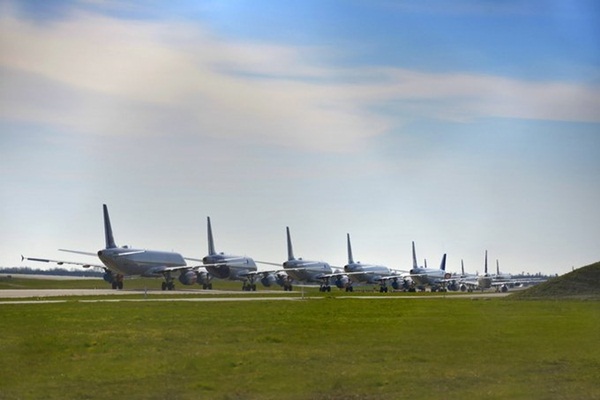Routes of less than 500km only represent a very small part of European air transport emissions (4.3 per cent); consequently, such measures will not provide substantial environmental impacts.
Recent European national Government announcements to ban short-haul routes in Europe could ultimately hinder, rather than help efforts for a more sustainable air transport future, as technological improvements for regional aviation, together with sustainable aviation fuels, offer the best and quickest solution to the decarbonisation of the sector by 2050.
Routes of less than 500km only represent a very small part of European air transport emissions (4.3 per cent1); consequently, such measures will not provide substantial environmental impacts.
Regional aviation has found itself at a crossroads between innovation and the political and public pressure to reduce passenger volumes, as recently there have been various announcements throughout Europe on the banning of short-haul routes in order to reduce the environmental impact of aviation. Yet, the regional sector is finding itself justifying its very purpose of existence: providing connectivity. ERA airline members connect parts of Europe where air transport is both vital and often the only mode of transportation available to inhabitants in remote regions, islands and dispersed areas.
Further to this, the short-haul segment is creating the necessary push towards the decarbonisation of the sector, providing the testing ground for new technologies that will enable the green transition to a more sustainable industry. Electric and hydrogen-powered aircraft, for example, will be made first available on short-haul routes by 2035 and then on longer routes beyond 2050.
Building new rail infrastructures and networks has significant CO2 impacts on the environment and is an environmental, financial and time-consuming exercise. Aviation is already advanced in its development of breakthrough technologies with limited to zero environmental impacts, and will be ready to integrate these into the market within a much shorter timeframe than it will take to build a new rail network.
It is therefore important that the EU and member states focus on solutions that can actually provide CO2 reductions, and not hinder the progress with initiatives like banning short-haul routes. For instance, improving air traffic management through proper implementation of the Single European Sky (SES) would lower CO2 emissions of intra-EU flights by up to 10 per cent.2
Montserrat Barriga, ERA Director General, said: “Banning air routes is dangerous as it may be seen as good for the environment, but in reality, it is not for many reasons. Firstly, routes with the equivalent alternative route by train are very few and in most cases the rail network already has the market share anyway. Secondly, the initiative may result in an increase in passengers electing to use their cars to reach their destination. Thirdly, a lot of regional airlines operate routes with thin traffic, so it is unlikely that rail networks will replace sectors that are wholly unprofitable. Lastly, short haul will be the first sector to test and deploy green technologies. It is therefore simply not effective to reduce CO2 emissions by banning short-haul routes and it creates a sentiment against aviation amongst the public. It is important that the EU and member states focus on solutions that can actually provide CO2 reductions, and not hinder the progress and potential of them with this type of initiative. Our industry takes its environmental responsibilities seriously and will do what is necessary to achieve its targets, but we cannot do it alone. We need a supportive policy framework to reach decarbonisation.”
1 https://www.eurocontrol.int/publication/eurocontrol-data-snapshot-co2-emissions-flight-distance
2 https://ec.europa.eu/commission/presscorner/detail/en/ip_20_1708
Tatiana is the news coordinator for TravelDailyNews Media Network (traveldailynews.gr, traveldailynews.com and traveldailynews.asia). Her role includes monitoring the hundreds of news sources of TravelDailyNews Media Network and skimming the most important according to our strategy.
She holds a Bachelor's degree in Communication & Mass Media from Panteion University of Political & Social Studies of Athens and she has been editor and editor-in-chief in various economic magazines and newspapers.




























































































































































































